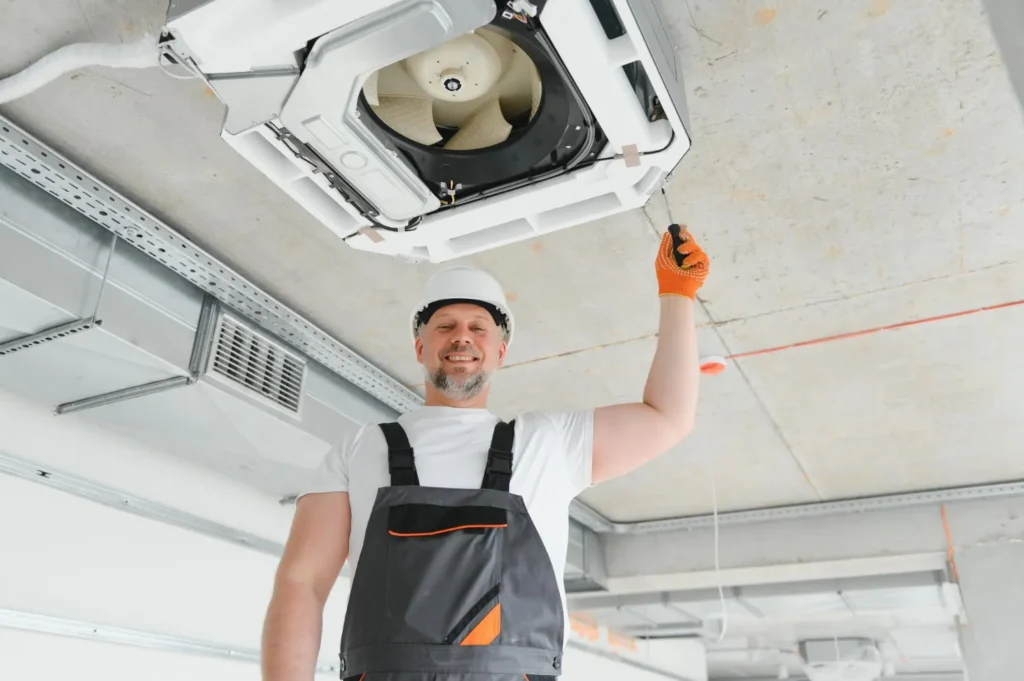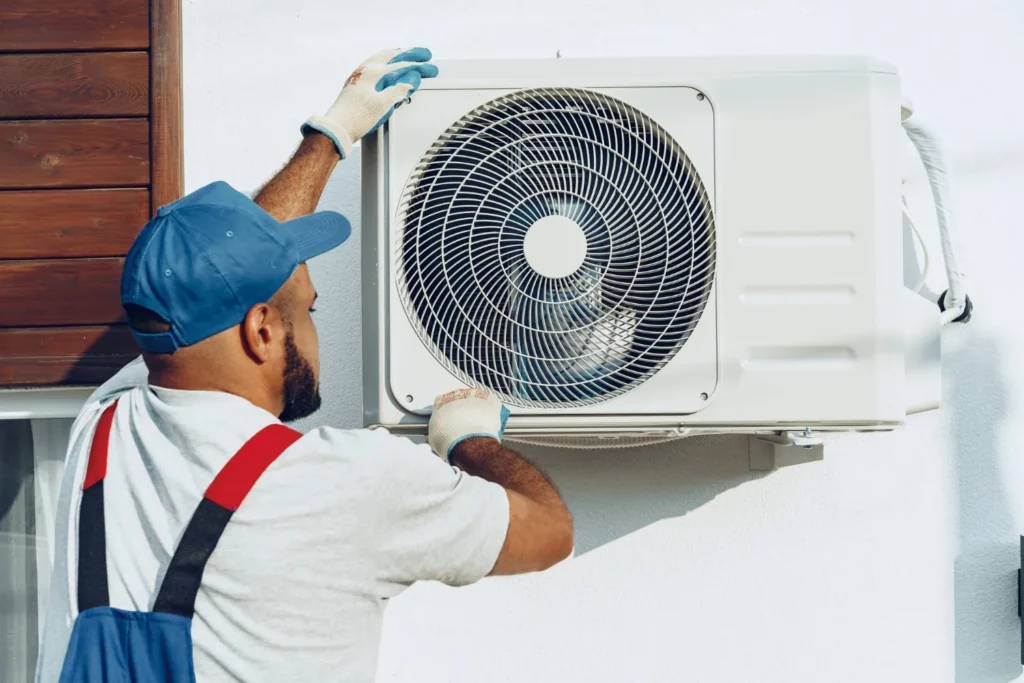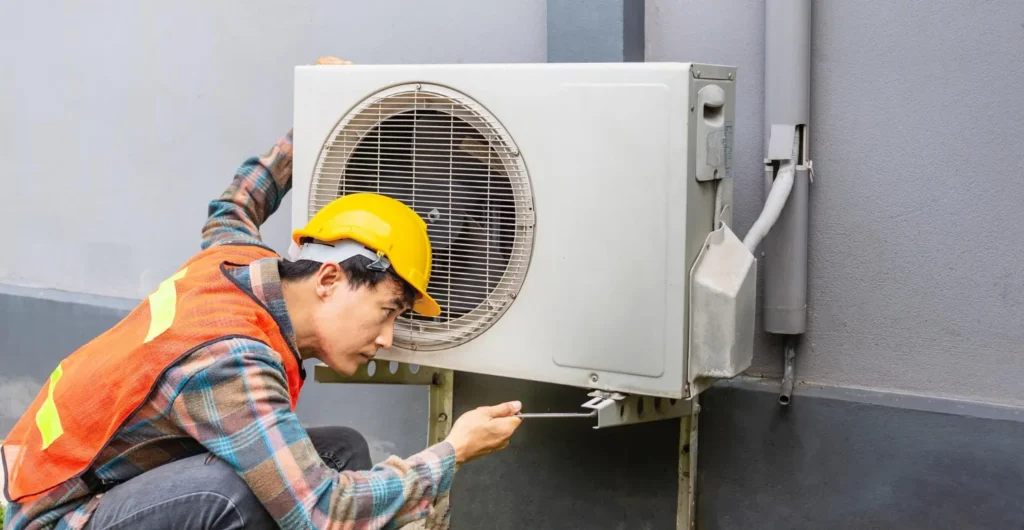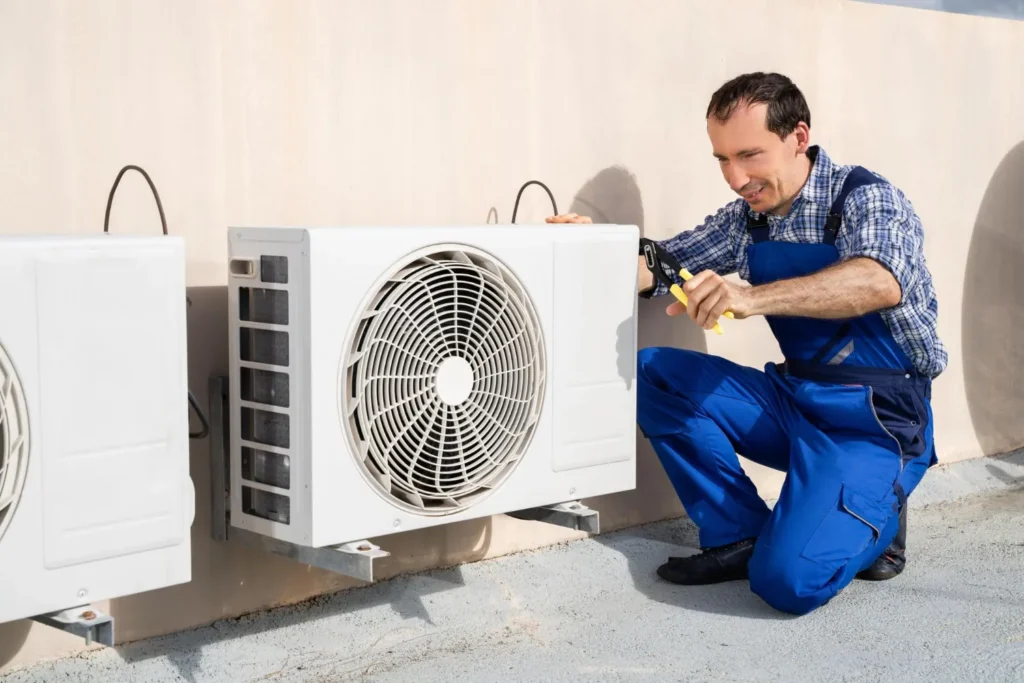A city known for its blistering heat and high humidity, a well-functioning air conditioning (AC) unit is essential. When your air conditioner starts making unusual noises, it can be more than just an annoyance; it often signals an underlying problem that needs attention. Understanding these Air Conditioner is Making Weird Noises and addressing them promptly can save you from costly repairs and ensure your home remains comfortable.
Climate, characterized by high temperatures and humidity levels, places a significant burden on AC units. With summer temperatures often soaring above 90°F and humidity levels making it feel even hotter, your air conditioning system works overtime to keep your home cool. Consequently, this strenuous operation can lead to various mechanical and electrical issues that manifest as annoying noises. Identifying these sounds early on and understanding their implications is crucial for maintaining the efficiency and longevity of your AC unit challenging climate.
Table of Contents
Everyday Air Conditioner is Making Weird Noises and What They Mean
Your air conditioning system can produce various knocking noises, each indicating a different issue. Here’s a closer look at what each sound might mean:

Humming
Humming is typically a low-pitched sound that can indicate electrical problems, motor issues, or a problem with the condenser fan motor. While not always a sign of serious trouble, it’s worth investigating to prevent larger issues down the line. It could signal that the internal pressure within the compressor motor is not balanced correctly, or there might be a problem with the air handler or ductwork, causing the air to move inefficiently.
Buzzing
Loud buzzing noises from an AC unit can stem from several sources, including loose parts, debris, or electrical issues. They may also indicate a problem with the condenser coil, fan motor, or other components that need attention to avoid further damage. A buzzing sound could be caused by a refrigerant leak or issues with the new capacitor, which is crucial for the compressor and fan to start.
Clanking
Clanking is usually a sign of loose or misaligned parts. It could be the result of a component coming loose or the compressor itself being out of balance. This noise warrants immediate attention to avoid more extensive repairs. Clanking might also indicate problems with the condenser hardware or other essential components inside the compressor unit.
Clicking
Clicking sounds are often related to electrical issues. They can occur when the thermostat is communicating with the AC unit or due to obstructions in the fan. Persistent clicking can indicate a failing thermostat or a relay issue, such as needing a new relay switch or dealing with signals electrics.
Screeching
A high-pitched screeching noise typically signals problems with the motor bearings or belts. This sound requires prompt attention as it can indicate wear and tear that could lead to motor failure. Screeching could also be a sign of a lousy blower or issues with the ductwork.
Rattling
Rattling noises often occur due to loose screws or panels or debris inside the unit. While it might start as a minor issue, ignoring it can lead to more significant problems if parts become dislodged or further damaged. Rattling could also be a symptom of a noisy air handler or ductwork issues.
Banging
Banging noises are usually caused by loose or broken parts within the compressor. This is a severe issue that typically requires professional repair or replacement of the compressor to prevent extensive damage to the unit. Banging can also indicate a bad compressor, which is a significant expense and requires immediate attention from an HVAC professional.
Causes of Weird AC Noises

Identifying the cause of these noises is the first step toward a solution. Here are some common causes:
Loose Parts
Over time, components can become loose due to regular wear and tear, leading to rattling or clanking noises. This is often a result of the unit’s constant vibrations during operation, which can loosen screws and other fasteners. Loose parts can also affect the air handler and fan blades, causing noisy air conditioning equipment.
Debris in the Unit
Leaves, twigs, and other debris can get into the unit, causing various sounds. Seasonal storms and high winds can easily blow debris into outdoor units, necessitating regular cleaning to maintain optimal performance. Debris can obstruct the fan blades and other moving parts, leading to noisy air conditioners.
Worn Out Bearings
Bearings in the motor can wear out, causing screeching noises. This is a common issue in older units or those that have yet to be regularly maintained, leading to increased friction and noise. Worn-out bearings can significantly impact the performance of the compressor motor and other critical components.
Electrical Issues
Faulty wiring or electrical components can result in buzzing or clicking noises. These issues can arise from wear and tear, poor installation, or damage from pests and need immediate attention to prevent potential fire hazards. Electrical problems can also affect the circuit breaker and other critical parts of the HVAC system.
Refrigerant Leaks
A hissing or bubbling sound might indicate a refrigerant leak. This not only reduces the efficiency of your unit but can also be harmful to the environment and your health. Professional HVAC technicians can detect refrigerant leaks, fix them, and recharge the refrigerant.
Faulty Fan Blades
Damaged or unbalanced fan blades can cause humming or rattling. These issues often arise from wear and tear or impact damage and can lead to inefficient cooling if not addressed. Fan blades are essential for proper air movement within the unit, and any imbalance can cause significant noise and operational issues.
Compressor Problems
Issues with the compressor can lead to loud banging noises. This component is crucial for the operation of your AC unit, and problems here often require professional diagnosis and repair. Compressor issues can be complex and expensive, usually necessitating the expertise of a local HVAC technician.
How to Diagnose Unpleasant Air Conditioner Noises

Proper diagnosis is critical to addressing unusual noises effectively. Here’s a step-by-step guide:
Initial Inspection
Start by checking for obvious issues like loose panels or debris. Remove any visible debris and tighten any loose screws. Listen closely to pinpoint the source of the noise. Check the air handler, fan blades, and other accessible components for any visible signs of wear or damage.
When to Call a Professional
If you can’t identify or fix the problem, it’s time to call a professional. Persistent noises, especially those related to electrical components or the compressor, require professional expertise to ensure safe and effective repairs. An HVAC professional can conduct a thorough inspection, diagnose the issue, and recommend the best course of action.
Detailed Look at Common Noise Issues
Here’s a closer look at common noise issues and their specific causes and fixes:
Humming Noise: Causes and Fixes
Motor Issues
A malfunctioning motor can cause a humming sound. Inspect the motor and replace it if necessary. Motor problems often stem from wear and tear or lack of maintenance, causing it to struggle during operation. Ensuring the motor is maintained correctly can prevent such issues.
Electrical Problems
Loose or faulty electrical connections can lead to humming. Have an electrician check the wiring. Electrical issues can arise from poor installation, age, or damage and require professional diagnosis and repair. Ensure the electrical work is up to code and free of defects.
Buzzing Noise: Causes and Fixes
Loose Components
Tighten any loose screws or panels. Buzzing often indicates that parts are vibrating against each other, which can escalate into more significant problems if left unaddressed. Ensure all components are securely fastened to prevent buzzing sounds.
Refrigerant Issues
Low refrigerant levels can cause the unit to buzz. Check the refrigerant and refill it if necessary. This issue often signals a leak, which requires professional repair to prevent further damage and restore efficiency. A refrigerant leak can be harmful and must be addressed promptly by a certified HVAC technician.
Clanking Noise: Causes and Fixes
Loose or Misaligned Parts
Inspect and tighten or realign parts as needed. Clanking sounds typically indicate that parts have come loose or are not correctly aligned, which can lead to more severe damage if not corrected. Ensure that all parts are correctly installed and functioning as intended.
Compressor Issues
A failing compressor can cause clanking. If it’s faulty, consider replacing it. Compressor issues are severe and often require professional intervention to diagnose and repair. A bad compressor can lead to significant expenses if not addressed promptly.
Clicking Noise: Causes and Fixes
Electrical Relay Problems
Clicking can indicate an issue with the electrical relay. Check and replace the relay if needed. Relays control the flow of electricity to the AC unit, and problems here can prevent the unit from operating correctly. A new relay switch may be required to fix the issue.
Obstructions in the Fan
Ensure the fan is clear of obstructions that could cause clicking sounds. Debris or loose objects in the fan can create noise and impair the unit’s functionality. To prevent obstructions, regularly inspect and clean the fan blades.
Screeching Noise: Causes and Fixes

Worn Out Belts
Belts can wear out and cause screeching. Replace worn belts. Screeching often indicates that a belt is slipping or has become damaged, requiring timely replacement to avoid further damage. Ensure belts are properly tensioned and in good condition.
Motor Bearing Issues
Lubricate or replace the motor bearings if they are causing noise. Bearings reduce friction in the motor, and their failure can lead to significant noise and operational problems. Regular maintenance of bearings can prevent such issues and ensure smooth operation.
Rattling Noise: Causes and Fixes
Loose Screws or Panels
Tighten any loose screws or panels. Rattling is a common issue that can be easily fixed by securing any loose components. Regularly inspect the unit for loose parts and tighten it as needed to prevent rattling noises.
Debris in the Unit
Remove any debris that may have entered the unit. Regular cleaning and maintenance can prevent debris from causing noise and damaging the unit. Ensure that both the outdoor unit and indoor components are free of debris to maintain optimal performance.
Banging Noise: Causes and Fixes
Loose or Broken Parts
Inspect and repair or replace loose or broken parts. Banging often indicates a severe issue that needs immediate attention to prevent further damage. Identify and fix the root cause of the noise to ensure the unit functions correctly.
Compressor Problems
If the compressor is causing the banging, it may need to be replaced. Compressor issues are among the most serious and typically require professional evaluation and repair. A bad compressor can cause extensive damage to the air conditioning system if not addressed promptly.
Conclusion – Air Conditioner is Making Weird Noises
Air Conditioner is Making Weird Noises are not to be ignored. By understanding the causes and taking appropriate action, you can maintain a comfortable and efficient home. Regular maintenance, timely repairs, and knowing when to call a professional are vital to extending the life of your AC unit. Addressing noise issues promptly can prevent more severe problems, saving you time and money in the long run.
Additionally, a well-maintained AC unit operates more efficiently, reducing energy costs and improving indoor air quality. Whether it’s a minor issue like a loose panel or a significant problem like a failing compressor, taking action early can prevent a minor annoyance from turning into a considerable expense. Hot and humid climate, a reliable and quiet air conditioner is essential for comfort and peace of mind. Stay proactive about your AC maintenance to ensure your home remains a calm and serene sanctuary all year round.
FAQs About Air Conditioner is Making Weird Noises
Why is my AC making a humming noise?
It could be due to motor issues or electrical problems. Inspect the motor and wiring for any faults. Regular maintenance can help prevent these issues.
Can I fix the AC noises myself?
Minor issues like loose screws or cleaning can be handled DIY, but a professional should address more complex problems. Always prioritize safety when dealing with electrical components.
How much does it cost to repair an AC?
Repair costs typically range from $150 to $600, depending on the issue. Costs can vary based on the complexity of the repair and the parts required.
What should I look for in an HVAC technician?
Look for experience, licensing, good reviews, and warranties on their work. Ensuring the technician has the proper credentials can ensure good artistry and further issues.
When should I consider replacing my AC unit?
Consider replacement if your unit is over 10-15 years old, frequently needs repairs, or needs to be more efficient. Upgrading to a newer model can improve efficiency and reduce long-term costs.
